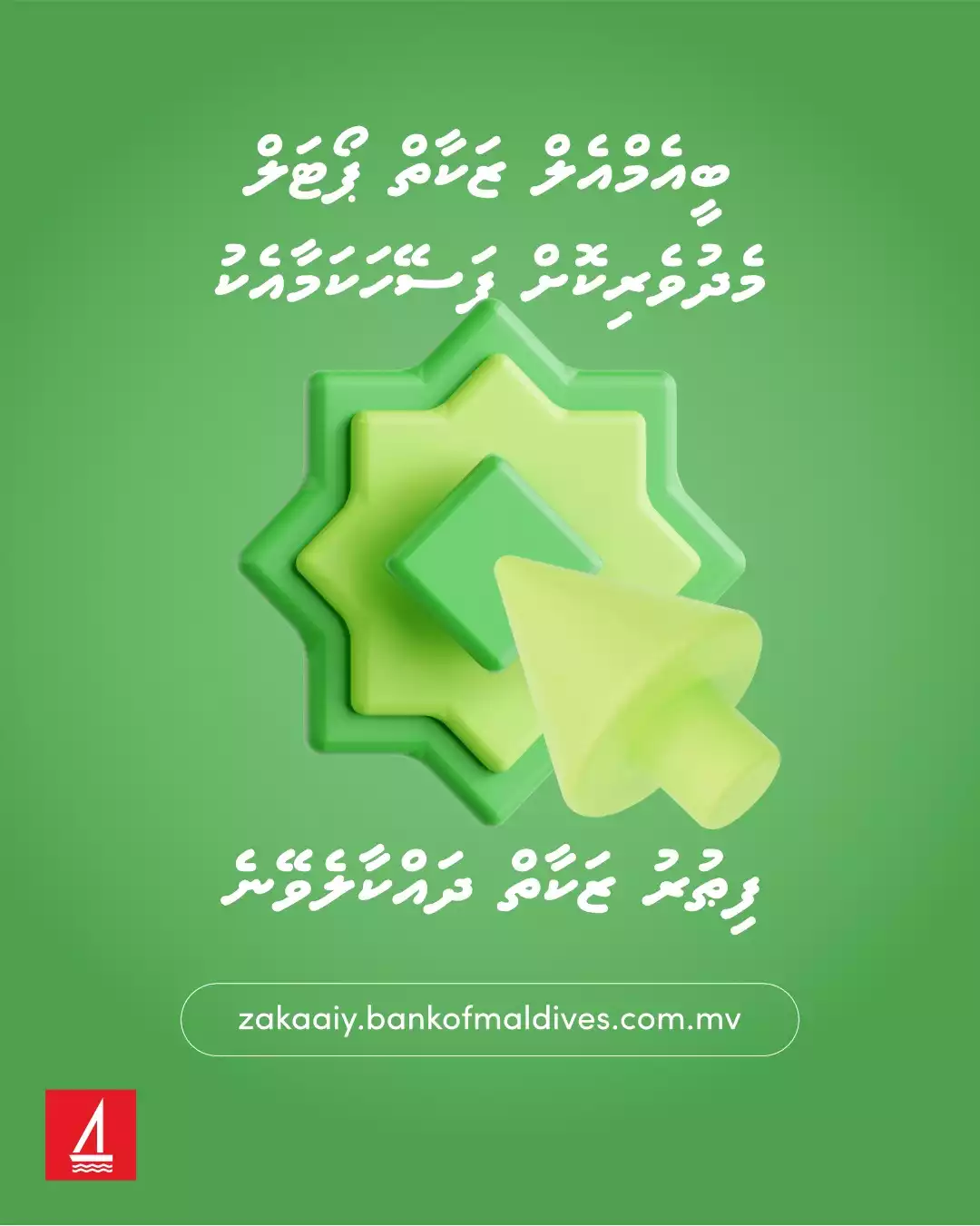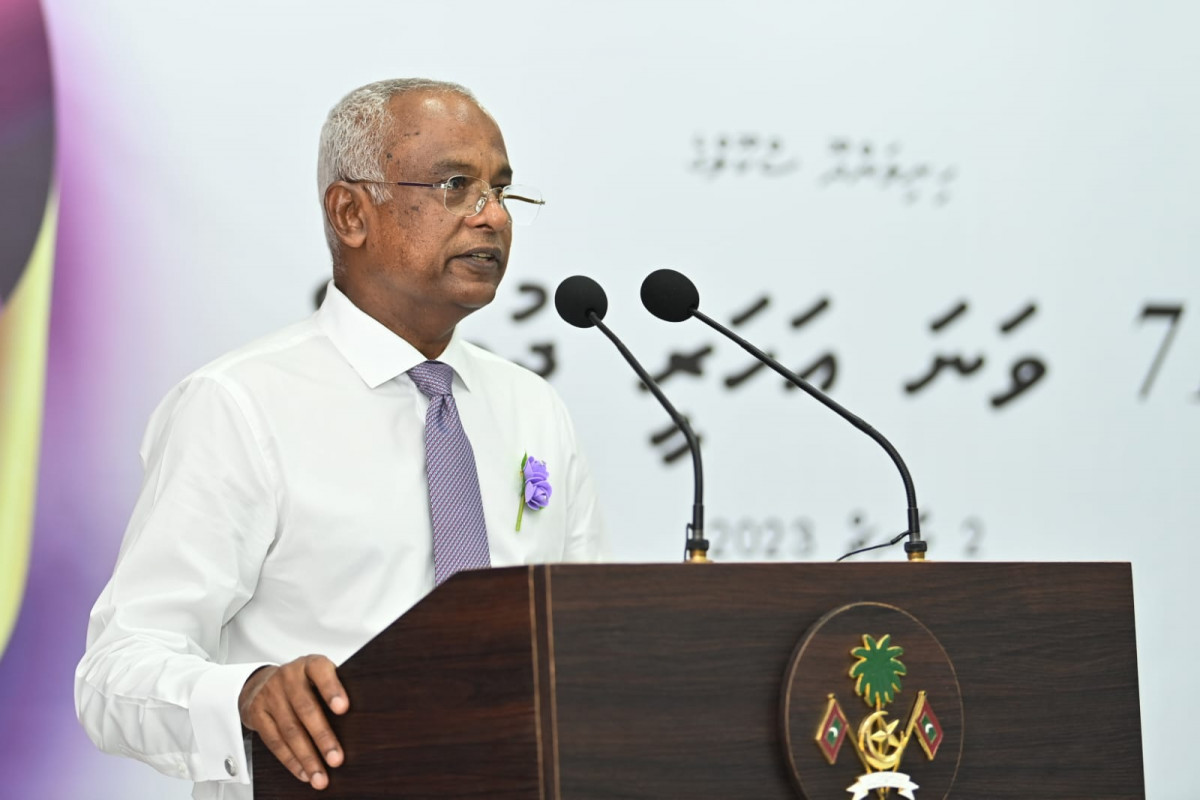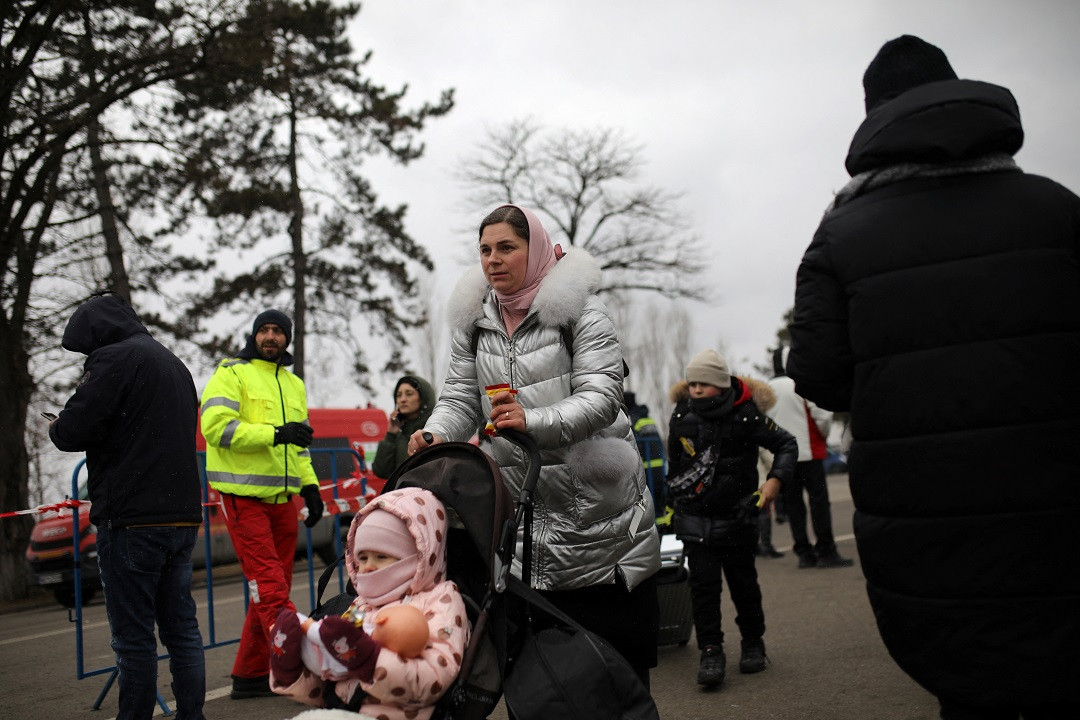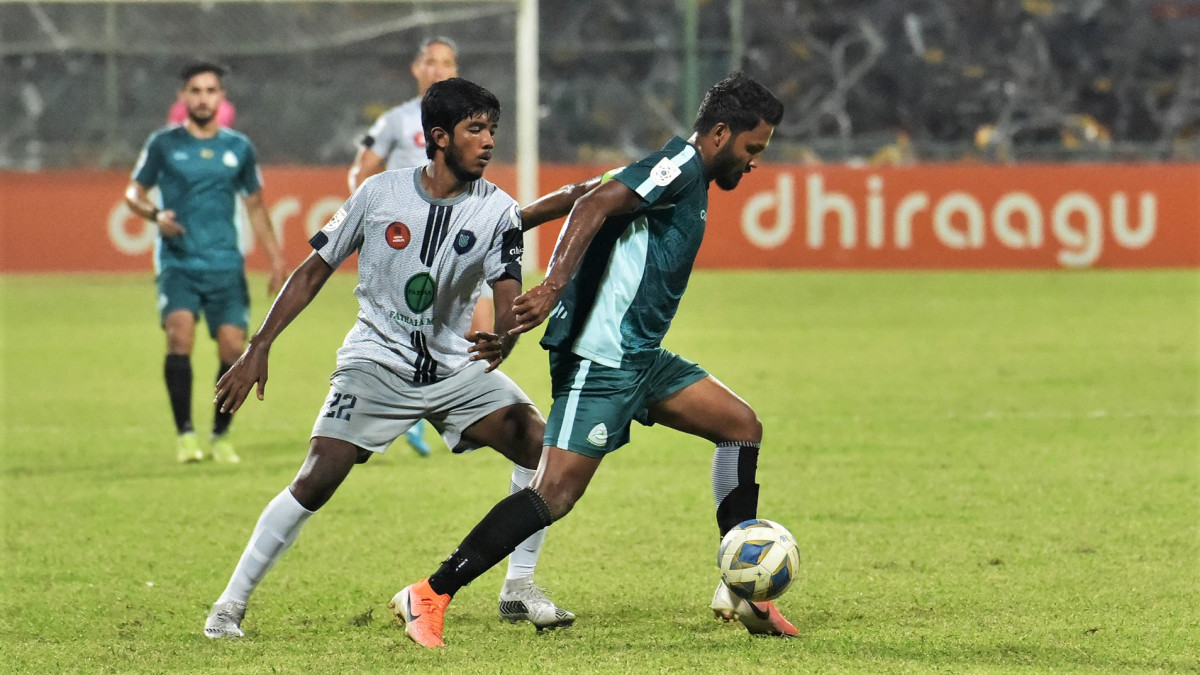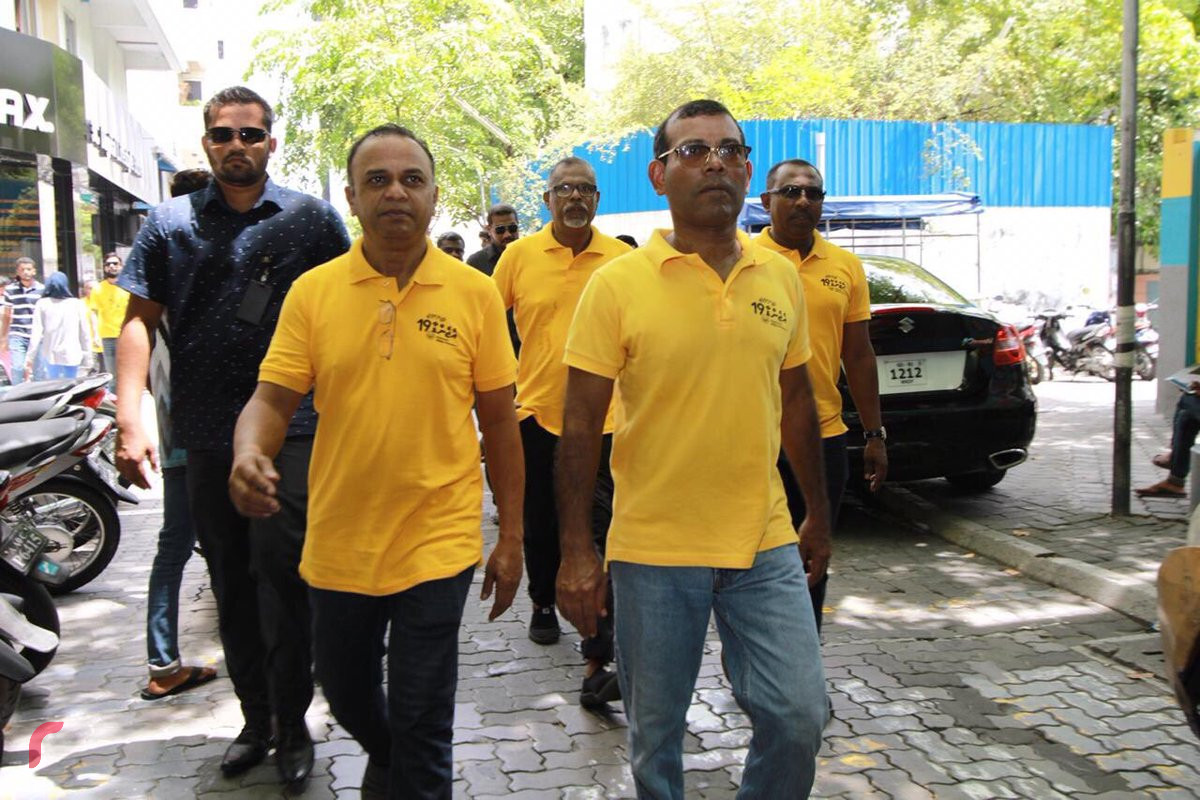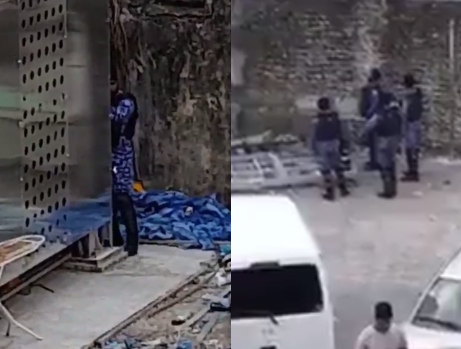Democracy in crisis: 13 arrested without legal access after brutal crackdown on 'Lootuvaaifi' rally
At least 13 individuals were arrested during the 'Lootuvaaifi' protest in Male City with reports of denied legal counsel

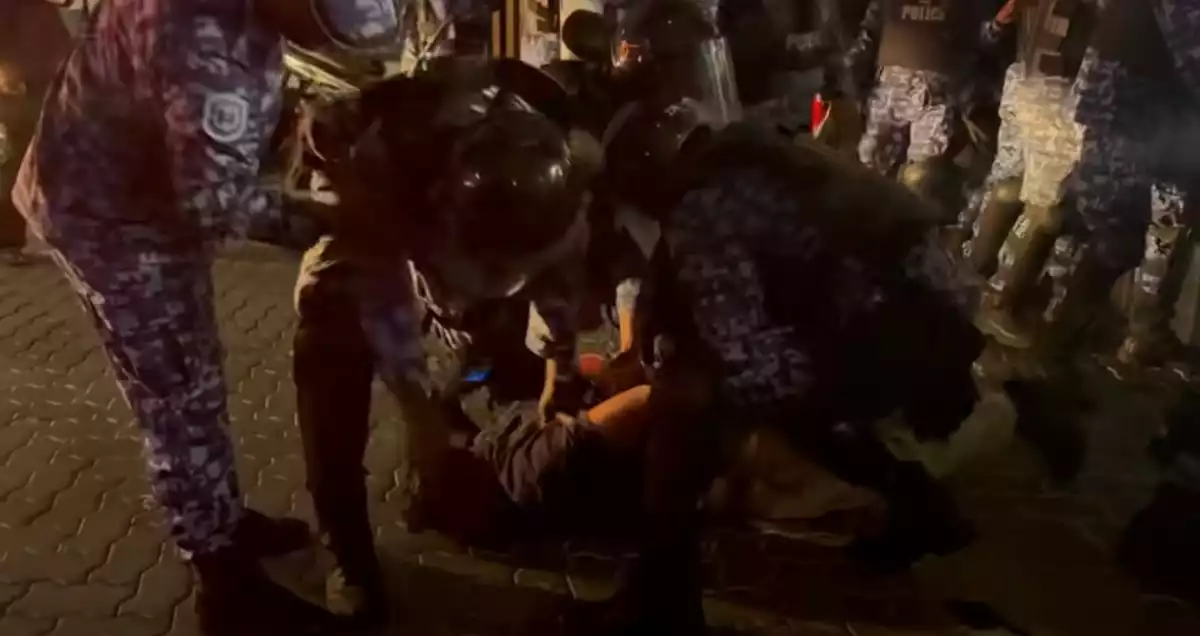
Arrest of Maafushi council president during Lootuvaifi rally
In the aftermath of Friday night’s intense “Lootuvaaifi, Lootuvaifi!” protest in the capital, Malé City, the main opposition Maldivian Democratic Party (MDP) has raised alarm over a wave of arbitrary arrests, human rights violations, and an increasingly authoritarian crackdown on dissent.
According to MDP, at least 13 individuals were taken into police custody during the protest, which was a peaceful demonstration that was violently disrupted by state forces. Despite repeated inquiries, no official information has been released by the police regarding the identities, conditions, or legal status of those detained. MDP reported that most disturbingly, none of the arrested individuals have been granted access to legal counsel, a direct violation of constitutional and international human rights standards.
Among those detained are two former members of the People’s Majlis and the sitting President of the Kaafu atoll Maafushi Council, further underscoring the government’s apparent willingness to silence not only activists, but also elected representatives.
The protest, organized in direct response to widespread public dissatisfaction with the Muizzu administration, was met with a heavy-handed police response. Eyewitness accounts and video footage reveal scenes of chaos as pepper spray was deployed at close range and Long Range Acoustic Devices (LRADs) were used against the crowd. These devices, often described as non-lethal, carry serious risks. MDP emphasized that LRADs can cause severe hearing damage, dizziness, disorientation, and long-term health complications.
One protester, Mohamed Raslaan, Vice President of the MDP’s Central Hulhumalé constituency, suffered a heart attack during the protest, allegedly triggered by exposure to both pepper spray and sonic blasts. He remains hospitalized and under medical care.
MDP’s statement went beyond documenting police brutality, it painted a picture of a country in democratic freefall. The party condemned what it describes as a regime descending into authoritarianism, with state institutions increasingly co-opted, judicial independence eroded, and media freedom under siege.
According to MDP, the government’s inability to address the economic crisis, rising debt, and the general disillusionment of the public is being met not with reform or transparency, but with force and repression. The government, the party alleges, now views peaceful assembly not as a constitutional right, but as a threat to be extinguished.
MDP has demanded the immediate and unconditional release of all those arrested during the protest and called on international human rights organizations and democratic allies to take urgent action. The party has formally raised concerns with the international community, warning that the Maldivian government is now in open violation of its obligations to uphold fundamental rights and democratic principles.
What unfolded in Malé on Friday night was more than a protest, it was a litmus test for the state of democracy in the Maldives, and as the government chooses silence, suppression, and secrecy over accountability, the question now looms large: How far will this regime go to silence its people, and who, if anyone, will stand in their way?
